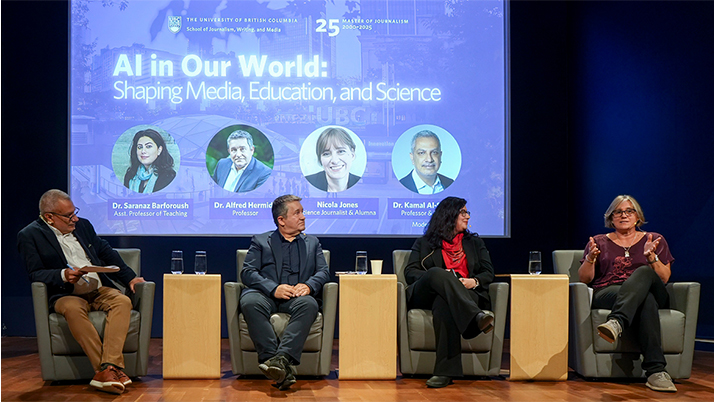Studies of gene-environment interactions could promise to tackle soaring Aboriginal disease rates in Canada, according to prominent public health officials and researchers speaking in Vancouver on March 4th.
Canada is one of the healthiest nations on the planet, but the health of many First Nations communities is in crisis.
“We’re looking at an epidemic of diabetes in First Nations communities,” said Candis Callison, assistant professor at the University of British Columbia’s Graduate School of Journalism.
“We’re also looking at huge TB rates, on the order of 14 times the Canadian average in at least one community.”
She added that HIV/AIDS infection rates and infant deaths are up to three times higher for First Nations and Inuit communities compared to the rest of Canada.
Callison was opening the Reporting Genetics and First Nations Health Media Workshop, hosted by the UBC Graduate School of Journalism and Genome BC.
Panels on health and the media
There were two panels that discussed the health disparities in Canada, the potential of genetic research for aboriginal communities and the difficulties media face when trying to cover these issues.
Dr. Marcus Lem, Director of Health Protection, First Nations and Inuit Health, for Health Canada, and Dr. Ruha Benjamin, a postdoctoral fellow at UCLA’s Center for Society and Genetics, made up the first panel.
Lem called the lack of genetic research going on in First Nations communities “a shame,” adding that genetic research is not a cure-all, but that genetic factors can “prolong and exacerbate” health issues in First Nations communities. Lem said genetic research could help when developing health policy and strategy.
Benjamin spoke eloquently about the ways in which ancestry and health are entwined through genetics. She used examples from Mexico and India to show the political implications of defining “populations” for research, in an era where many countries are “branding” and asserting proprietary ownership over genetic material.
She noted that racial categories are cultural, and that genetics research is crafting new “narratives of origin” and creating new understandings of human difference.
Dr. Evan Adams, Aboriginal Health Physician Advisor for the B.C. Ministry of Healthy Living and Sport, argued that environmental factors affecting health in Aboriginal communities — such as poverty, stress and poor housing — should be prioritized, not genetics research.
‘Indifference in newsrooms’
The second panel was made up of Duncan McCue, award-winning reporter for CBC-TV News and adjunct professor of journalism at the UBC’s Graduate School of Journalism, and Dr. Nadine Caron, the first Aboriginal woman to graduate from the UBC’s Faculty of Medicine.
Dr. Caron is currently an assistant professor of surgery at UBC, an adjunct professor at the University of Northwestern British Columbia and associate faculty at Johns Hopkins University.
Both panelists addressed issues of accessibility — access to health care for Aboriginal people and access to First Nations communities and sources on the part of the media.
Dr. Caron spoke about the accessibility of medical care for First Nations people living in remote areas. She said that access to health care is a huge issue for Aboriginal people. Dr. Caron added journalists “do an amazing job,” of drawing attention to problems of access.
McCue said most issues around coverage of Aboriginal health boil down to “indifference within our mainstream newsrooms to reporting aboriginal issues and in particular to Aboriginal health issues.”
Listen to podcasts of the two panels at iTunes U: Part 1 and Part 2
UBC journalism student Megan Stewart live-blogged the public workshop.


